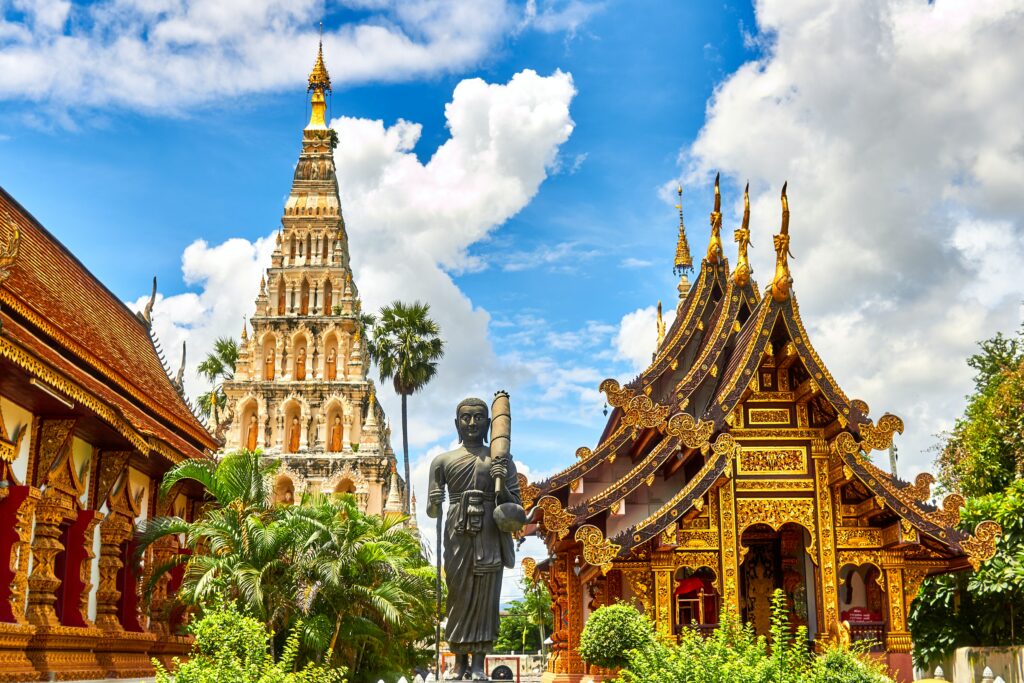Thai crime has been a huge issue for the country for many decades. In fact, it’s inspired years of criticism on an international level. Corruption and drug use are the major crimes, and because of that, many administrations attempt to stop the drug trade.

Thaksin Shinawatra was the most notable during his war on drugs in 2003. Since then, crime has decreased significantly, so the rate is now 2.58 from 9.97 per cent. However, juvenile delinquency has increased in the last few years.
Generally, the most notable crimes were robberies, burglaries, and thefts in 2015. However, violent issues were up about eight per cent in that time period.
Many agencies had contested the figures because that was also when the military came into power.
It’s considerably challenging to determine if there’s less crime in Thailand after weed legalisation. There are many factors at play here, such as what types of crimes were committed, whether the assailants were using drugs, and if the victims had used marijuana before things transpired.
Likewise, there aren’t many studies showcasing information about crime in the country after marijuana legalisation. This likely stems from the fact that reports haven’t come out, and agencies aren’t focused on measuring an increase or decrease in crime because of cannabis.
Still, marijuana supporters often claim that there’s less crime in areas where it’s legal to smoke or use. Let’s look at a few points and factors:
The Drug Trade
Since most of the arrests and convictions surround the drug trade, it’s safe to say that there has been a measurable increase in less crime.
Overall, there are fewer drug-related crimes because people aren’t getting convicted of using, possessing, or growing marijuana. Before it was legalised, many convictions focused on that herb compared to other, more worrisome substances.
In the past, most people were incarcerated in prisons because they were low-level users or traders of marijuana. They are easy targets for the cops because organised criminals and large-scale traffickers have many working for them. It’s harder to determine who the top dog is in those cases.
However, once marijuana was legalised, the police couldn’t do much to stop people from using it. One thing to note is that it’s still illegal to use or possess cannabis if you don’t have a medical purpose or are in public.
What the People Say
Several guidelines and frameworks are in place for the licensing and jurisdiction of medical cannabis. Doctors were trained and granted the right to prescribe cannabinoids or marijuana. Since then, 449 traditional medical clinics and 339 medical cannabis clinics have been opened to provide treatment.
Clearly, the change in policy loosened cannabis use, so agencies are just starting to find patterns and risk issues. Roughly 13.3 per 1,000 12- to 15-year-olds reported using marijuana in that first year. That increased 3.5 times from back in 2016. Now, it’s considered the most commonly used drug.
Most people (86 per cent) of the general population agreed that medical marijuana should be legalised. However, only 31 per cent believe it should be extended to recreational usage.
Releasing Prisoners
A few weeks after legalising and decriminalising marijuana usage (for medical purposes), the Thai government released about 4,000 prisoners. What was their crime? They had offences relating to cannabis. Along with that, roughly 110 million baht must be returned to its owners because it was seized from the offenders under the Thai’s anti-money laundering law.
About 16 tonnes of cannabis was seized from offenders in the past, which was to be destroyed. Now, the owners may claim it all back if they wish to do so.
Some people worry about the consequences of letting these people out. They were not unjustly jailed at the time. Still, it’s hard to say that weed is now legalised in Thailand and keep people incarcerated because they were ahead of the times.
Could that cause crime rates to rise more? Generally, the answer is no. The people being let out of jail were only convicted of cannabis-related crimes.
Subsequently, the current suspects in the court system on use/possession-related charges of cannabis may also be released. There’s uncertainty as to whether they can walk free or must still appeal to the court in some way.
How to Know How Much Weed Is Growing
Many people worry that everyone might possess or grow cannabis for household use. While that is not technically illegal (as long as they have a medical reason), people must notify the authorities. They don’t need a license, but they must tell the government they plan to grow or use the medicinal plant using an online platform.
Those who wish to produce cannabis products, import, or export it must get permission from the authorities and government.
Overall Decline
Since most of the drug-related crimes focused on cannabis, it’s safe to say that there’s a measurable decrease there. However, there’s less crime in all of Thailand, regardless of the type. The declining trend could change, though.
There isn’t enough information available yet. The crime rates of 2022 aren’t likely to be seen until early 2023. While cannabis was technically legalised in 2018, it wasn’t decriminalised until June 2022. Likewise, the government had to wait until it had sufficient rules in place.
Therefore, overall crime rates have seen a downward trend since 2015 and continued to do so through 2021. If things move along the same timeline, crime should stay the same or dip slightly through 2023.
It’s best to revisit the topic in a year because it should be easier to see if there was a measurable increase in less crime from weed legalisation.
Conclusion‘

Everyone in Thailand is rejoicing. On June 9, 2022, cannabis was decriminalised and officially taken off the narcotics list. Since then, farmers and others can grow it legally, use it medicinally, and even find restaurants and cafes that serve marijuana-based products.
Many people worry about an increase in crime rates because of its legalisation. However, no reports indicate that might happen. In fact, crime, in general, has sufficiently lowered, and many incarcerated people were let go if they had cannabis-related offences.


